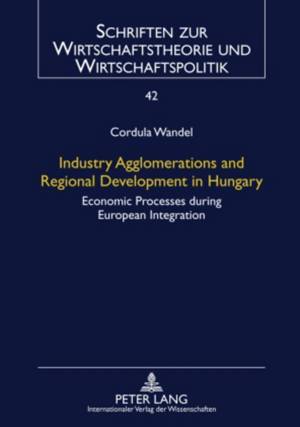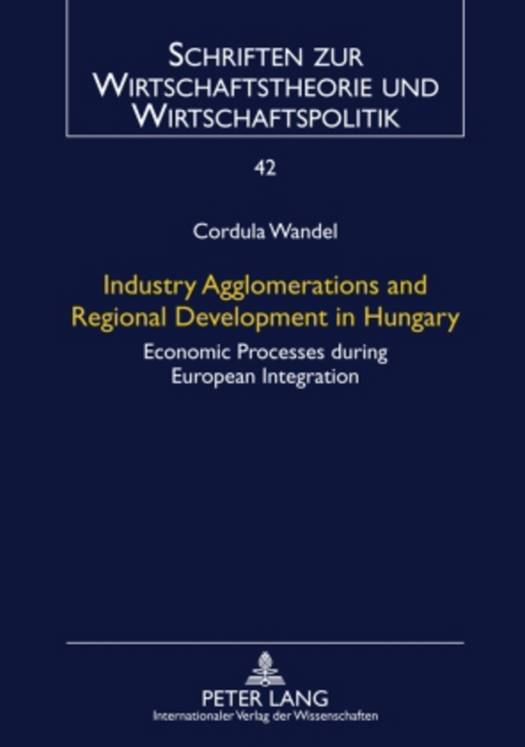
Door een staking bij bpost kan je online bestelling op dit moment iets langer onderweg zijn dan voorzien. Dringend iets nodig? Onze winkels ontvangen jou met open armen!
- Afhalen na 1 uur in een winkel met voorraad
- Gratis thuislevering in België vanaf € 30
- Ruim aanbod met 7 miljoen producten
Door een staking bij bpost kan je online bestelling op dit moment iets langer onderweg zijn dan voorzien. Dringend iets nodig? Onze winkels ontvangen jou met open armen!
- Afhalen na 1 uur in een winkel met voorraad
- Gratis thuislevering in België vanaf € 30
- Ruim aanbod met 7 miljoen producten
Zoeken
Industry Agglomerations and Regional Development in Hungary
Economic Processes During European Integration
Cordula Wandel
€ 99,45
+ 198 punten
Omschrijving
In context with the Eastern enlargement of the European Union, this research deals with the effects of pre- and post-enlargement integration policies on industry concentration and regional development in Hungary. Economic processes are analysed empirically and by means of regression analyses with a spatial perspective and in the framework of the new economic geography over a time span of almost two decades. The results for the manufacturing industries and for regional specialization show which economic centres played a role for the economic development of the country over time. The roles which agglomerations and regional specialization can play are discussed with a view to the problems of cohesion in Hungary, the enlarged EU and future EU accession countries. The conclusions also take into account the current political and academic debate regarding European regional policy.
Specificaties
Betrokkenen
- Auteur(s):
- Uitgeverij:
Inhoud
- Aantal bladzijden:
- 278
- Taal:
- Engels
- Reeks:
- Reeksnummer:
- nr. 42
Eigenschappen
- Productcode (EAN):
- 9783631600917
- Verschijningsdatum:
- 27/05/2010
- Uitvoering:
- Hardcover
- Formaat:
- Genaaid
- Afmetingen:
- 148 mm x 210 mm
- Gewicht:
- 459 g

Alleen bij Standaard Boekhandel
+ 198 punten op je klantenkaart van Standaard Boekhandel
Beoordelingen
We publiceren alleen reviews die voldoen aan de voorwaarden voor reviews. Bekijk onze voorwaarden voor reviews.











